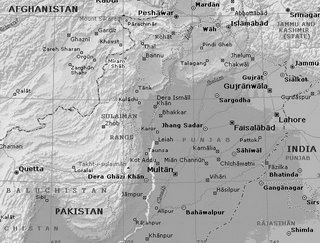Professor Roy Meadow is a paediatrician, whose so-called "expert" testimony was significant in securing the conviction of two women for murdering their children, The convictions were later squashed by the Appeal Court because Meadow's evidence was discredited. As a result, Meadow was struck off the medical register by the General Medical Council for serious professional conduct; but he successfully appealed to the High Court, whose ruling seemed to grant expert witnesses immunity from action by their governing professional bodies, whatever nonsense they spouted. The Appeal Court has now over-turned that decision on immunity but at the same time has reinstated Meadow.
It is a difficult case but I will try to explain the problems in simple terms. As the Times reports,
Professor Meadow was acclaimed as an expert in the field of Sudden Infant Death Syndrome (Sids) and how such deaths could be differentiated from children harmed by their parents — so-called Munchausen’s Syndrome by Proxy.
It was Meadow's claimed expertise in these matters and his evidence that the accused women were suffering from Munchausen's Syndrome by Proxy, not SIDS, that led the jury to convict the accused.
A
syndrome is not a disease in the normal sense, that is a disease with symptoms that can be seen or measured. It is essentially a pattern identified in the behaviour of a number of individuals which has been categorised and labelled by researchers in the medical profession as a "syndrome". That pattern of behaviour may or may not exist in the real world. In other words, where one team of researchers might identify a particular pattern, using the same data another team might come to a very different conclusion. It depends on how you interpret the data. Such a subjective interpretation of data is a theory rather than a fact. In academic jargon, it is a conceptualisation, that is, a way of looking at and interpreting things. Different people look at things in different ways.
I know these are difficult concepts to grasp , even for post-graduate students, but the essential point that is that Meadow's evidence was based on a (theoretical) conceptualisation but he claimed it as fact. The average jury, impressed by Meadow's status and not containing individuals who understood these complex issues, seem to have accepted Meadow's claims as facts and so the conviction was secured despite the absence of any physical evidence whatsoever.
As a professor, Meadow should have known better than to present theory as fact. Heaven knows what he is teaching his research students . At the time of the original trials I remember thinking that, when I was a research student, if I'd presented a my supervisor with an argument treating a theory or a view as fact, she would have demolished the argument very quickly.
It was the sheer arrogance of Meadow claiming his interpretation of theories as facts which led the GMC to strike him off. The Court of Appeal seems to have thought Meadow acted in good faith. I doubt they grasped the nature of the argument.




